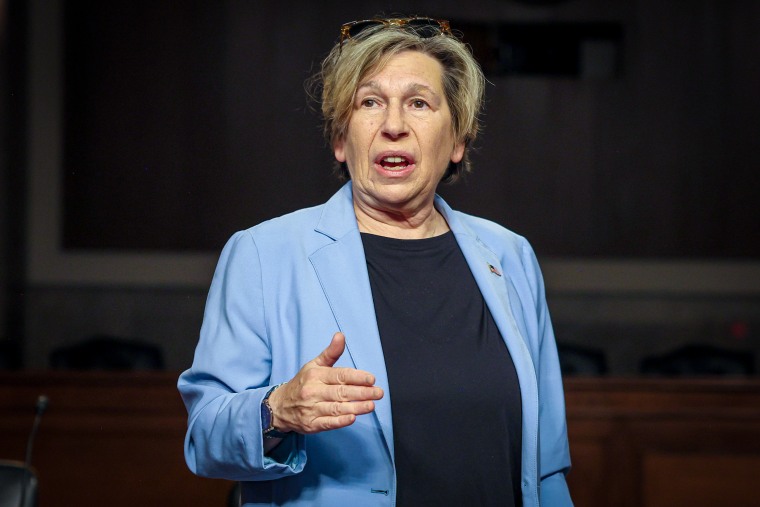Antonio Gracias, a high-ranking DOGE official who was simultaneously managing nearly $2 billion in assets for nine public pension funds, has left the government, his firm said, after a top union leader raised questions about the risks Gracias’ dual roles posed to the funds.
Gracias is founder, chief executive and chief investment officer of Valor Equity Partners, a private equity firm that manages $17.5 billion in assets. A longtime Elon Musk ally, Gracias had been working at the Department of Government Efficiency, the cost-cutting entity created by Musk and President Donald Trump. During his time at DOGE, he attacked the Social Security Administration and raised allegations of voter fraud.
On Monday, Randi Weingarten, president of the American Federation of Teachers, sent letters asking the managers of nine public pension funds that together have $1.8 billion invested with Valor whether Gracias’ work with DOGE has reduced their values.
“Pension fund fiduciaries have a duty to ensure the integrity of their investments, and it is concerning to us that Valor employees appear to be engaged in alternative pursuits unrelated to the management of their core business,” Weingarten told NBC News. She said AFT wrote to the nine funds “to question if the risks of Valor now outweigh the gains.”
Weingarten sent the letters to the California Public Employees’ Retirement System (CalPERS), the California Teachers’ Retirement System (CalSTRS), the New York State Common Retirement Fund, the Teacher Retirement System of Texas and other funds. AFT, her organization, has 1.8 million members, some of whom are beneficiaries of the nine pension funds.
Valor did not respond to a request for information Tuesday about Gracias’ work for DOGE. On Wednesday, Weingarten’s office emailed Valor asking for the current status of his work in the Trump administration. Valor replied to Weingarten that Gracias stopped contributing as a volunteer at DOGE as of July 1. It confirmed in an email that Gracias “remained actively involved in the management of Valor” during his time at DOGE.
Gracias’ departure from DOGE does not appear to have been previously announced publicly.
“While we are encouraged that Mr. Gracias has abandoned DOGE and seems to now be taking his core business seriously, it’s disappointing it apparently took letters from investors to finally flush out the truth,” Weingarten said in a statement.
Gracias founded Valor in 1995, according to its website, and was an early institutional investor in Tesla, Musk’s electric car company, as well as a director. He helped Tesla issue shares to the public, and Forbes estimates his net worth at $2.3 billion, largely because of his Tesla shares.

Gracias told reporters in May that during his time at DOGE, it had referred 57 examples of potential voter fraud to the Justice Department. He described the people as “resident aliens who were registered to vote and may or may not have voted in elections.”
Gracias highlighted the 57 cases but acknowledged he did not know whether the people had actually cast ballots. “We’re not sure,” he said. “We referred the cases.” If they are found to be fraudulent, the 57 ballots represent a tiny fraction of the more than 155 million votes cast in the 2024 election.
At a town hall event in Wisconsin this year, Gracias and Musk criticized the Social Security Administration, falsely telling the audience that large numbers of immigrants were receiving Social Security cards and then collecting benefits. Instead, undocumented immigrants often pay into the Social Security system without being able to receive benefits.
Weingarten said in her letters to the pension funds that Gracias’ work at DOGE was “potentially at odds with the interest of your fund and its beneficiaries,” many of whom rely on Social Security payments in addition to their pensions.
The letters also said Gracias’ dual roles raised fundamental questions about the degree to which he is “actually engaged in the asset management activities for which your fund is paying them.”
CalPERS, for example, paid Valor more than $8 million in management fees in fiscal year 2024, according to its most recent annual report.
Representatives for CalPERS, CalSTRS, the New York state pension and the Teachers Retirement System of Texas confirmed they had received the AFT’s letters. A spokesman for CalPERS said it has reviewed the letter and will respond accordingly.
A spokesman for CalSTRS said, “We monitor our holdings, engage companies and collaborate with general partners to identify and address risks in our portfolio.”


